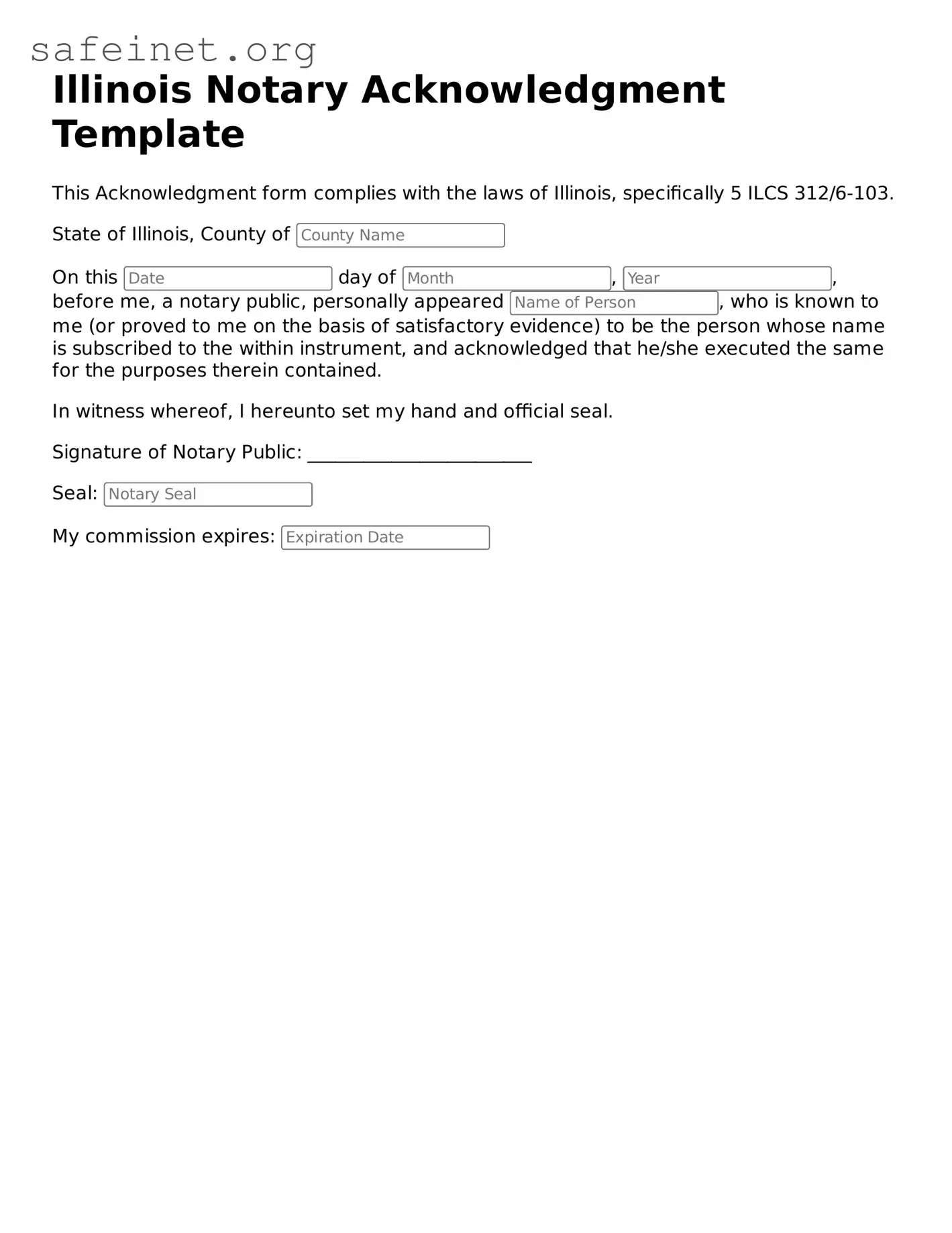What is an Illinois Notary Acknowledgement form?
The Illinois Notary Acknowledgement form is a document that verifies the identity of a person signing a legal document. It confirms that the signer appeared before a notary public and acknowledged signing the document willingly. This helps establish the authenticity of the signature and can be crucial for legal purposes.
When is the Notary Acknowledgement form required?
This form is often required when signing various legal documents, such as contracts, deeds, or powers of attorney. If a document needs to be recorded or submitted to a government agency, an acknowledgement may be necessary. Always check specific requirements based on the type of document you are dealing with.
Who can act as a notary public in Illinois?
In Illinois, a notary public must be at least 18 years old, a resident or employed in Illinois, and a U.S. citizen or lawful permanent resident. They also need to complete an application and pass a criminal background check to become commissioned. Once commissioned, they can perform notarial acts, including acknowledgements.
How do I complete a Notary Acknowledgement form?
To complete the form, the signer should appear before the notary public, bringing a valid form of identification. The notary will ask the signer questions to confirm their identity and willingness to sign. After the acknowledgment is made, the notary will fill out the form, including their signature and seal, indicating that the process was completed correctly.
What is the difference between a Notary Acknowledgment and a jurat?
A Notary Acknowledgment simply verifies that a person signed a document. In contrast, a jurat involves the signer taking an oath or affirmation in front of the notary, confirming that the contents of the document are true. So, if an affidavit or sworn statement is being signed, a jurat is typically used.
Are there fees associated with notary services in Illinois?
Yes, notaries in Illinois may charge a fee for their services. The maximum fee for notarizing an acknowledgment is set by state law. Check with your notary ahead of time to understand any costs involved. Many notaries also offer discounted or no-charge services for community members or nonprofits.
